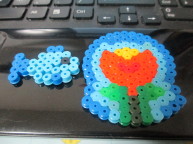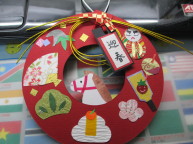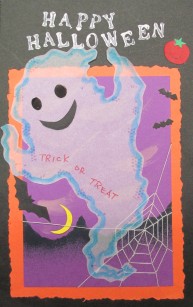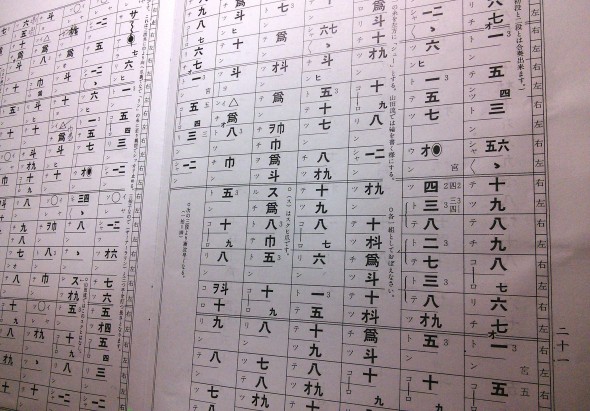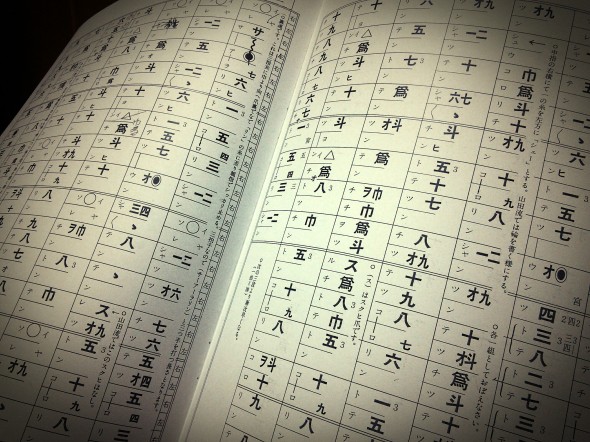A crucial part of the KCJS curriculum is one’s involvement in the CIP or “Community Involvement Project.” The aim of this project is to help KCJS students immerse themselves in a certain aspect of Japanese culture, and can consist of activities from volunteering at a hospital or nonprofit organization to participating in a Doshisha University club or circle.
Since I have aspirations to participate in the JET programme after graduation, and since I ultimately plan to pursue a career as a college professor, I opted to volunteer at an elementary/middle school called Ohara Gakuin as an assistant English teacher for the experience.
Ohara Gakuin is a quaint little school in the middle of the mountains a little ways outside of Kyoto City. The school consists of grades 1through 9, and they have also just recently instated nursery and kindergarten services. Since I do not have afternoon classes/commitments at KCJS on Mondays or Wednesdays, I volunteer on one of those days, once a week, from about half past twelve to 4 pm.
I shall hereby describe a typical day of volunteering. Since Ohara and Doshisha are quite far apart, I have to take a series of very strictly scheduled trains and buses to make it there on time every week, and the commute can take up to an hour. But once there, I typically will eat lunch with one class then teach two classes during Ohara’s 5th and 6th periods. The grades I eat with and teach alter every week, so I have a chance to interact with every grade 2-3 times over the course of 10 weeks. However, since I teach all grade levels the teaching itinerary is never consistent, but there is a pattern. Generally, with the 1st-4th grade (sometimes 5th) we tend to just play games, sing songs or do other fun activities that involve using English on a very minimal level. Whereas with the older students, we do grammar exercises, and dictation and reading drills (some examples include learning about relative pronouns and how to use the gerand in English).
Over all, teaching at Ohara has been a very eye-opening experience for me. Since I was born and raised in Jamaica, I can only compare the activities to Ohara to what I experienced in my own school system at home (as opposed to the U.S. where I only went to high school and college), and the overall operation of the education system is drastically different. First of all, in Jamaica, we have one teacher for all academic subjects who we work with every day, as opposed to staying in the same homeroom and having teachers come in and out depending on the subject. Another discrepancy is that in Jamaica, when a student or group of students started to cause a ruckus or disturbed class in any way, teachers are very quick to rebuke students about their conduct and discipline them if necessary. At Ohara, the teachers often turn a blind eye and continue teaching or simply wait for students to calm themselves down before resuming the lesson.
In addition to this, while working at Ohara something else that struck me as odd was the nature of the English education system in itself. For instance, when using the textbook, I often found some very unnatural English structures that are understandable, but would be very obscure to a native speaker, and also some expressions that seemed very ‘Japanese-y.’ In fact, I brought this up with some of the teachers there and they agreed with me! Therefore, we created alternative expressions/explanations and I was extremely pleased to know that my contributions had made some kind of a difference. Otherwise, the pacing of many of the classes seemed extremely slow, and consequently, I noticed that quite a few of the students had a hard time keeping focus for the full 50 minute class period.
Now, I understand that with only 10 visits to the school, I am seeing only a very limited example of what the system is like. Therefore, it is impossible for me to make judgements on the Japanese English education system on a whole based on my time spent at Ohara. However, I still could not help but consider the scholastic practices which are so different than what I am accustomed to on a critical level.
For instance, some of my findings included the realization that the pronunciation ability of the students in 1st and 2nd grade rivaled the ones of those in 8th and 9th grade, and classes in all grade levels spend a lot of class time focusing on perfecting their 「自己紹介」or “self-introductions.” Out of curiosity, I asked two teachers, whom I assist frequently, for their thoughts on the matter. It turns out that one teacher believed that the most effective method of retaining material learned in class is through repetition, and so because of that, progress can be rather slow. Conversely, the other teacher told me that the reason these inconsistencies exist is actually because the English program at Ohara is a fairly recent development. In fact, English language instruction was not fully incorporated into the syllabus until about 5 years ago. Currently, the elementary school students take English classes once a week for an hour, while the middle school children have English 4 times a week for one hour. Whereas beforehand, the 1st through 3rd grade did not have English lessons at all and 4th through 9th grade only had classes once a week.
The limited English ability of the students often left me feeling frustrated because I often felt there was so much I wanted to do or try that worked for me as a language student, but because of the strictness of the syllabus, because I could not express my sentiments clearly to the students and to avoid overstepping my boundaries, I often simply had to sit back, have faith in the methods employed by the teachers, and do my best to help where I could.
Additionally, I am a Cultural Anthropology/Japanese double major, so cultural differences among social groups, especially as they relate to Japan, are extremely interesting to me. Therefore, although volunteering at Ohara has been an extremely fantastic and rewarding opportunity, it is simply not enough. Thus, when I go on to (hopefully) participate in the JET programme, or whenever I have any other exposure to the Japanese education system, I intend to further my studies and research and derive some concrete theories as to how and why the system works the way it does.

